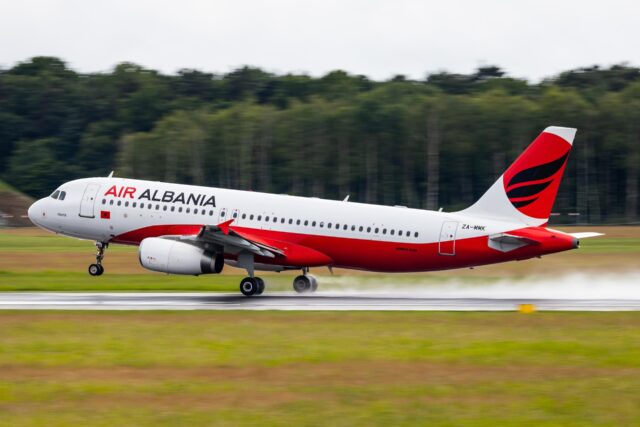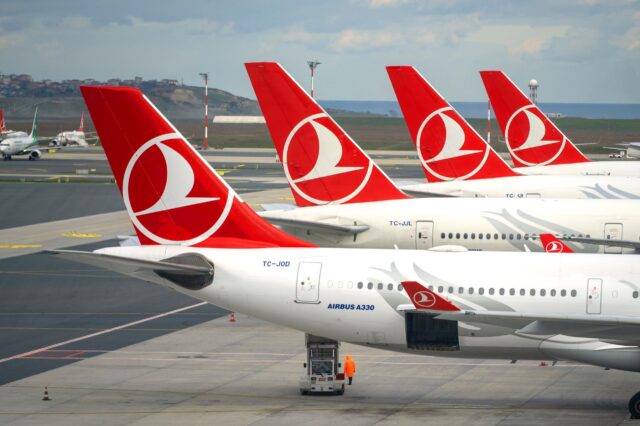Business aviation in Africa: The world can no longer ignore African skies

September 15, 2025

Dawit Lemma, Chair of the African Business Aviation Association (AfBAA) and CEO of Krimson Aviation, underlines the pivotal role of business aviation as a social tool and economic enabler for Africa.
Speaking at this year’s Aviation Africa 2025 Summit and Exhibition, which was held 4-5 September in Kigali, Lemma described the Rwandan capital as a symbol of African innovation and resilience as he reframed what “business aviation” means in an African context.

Lemma referenced the Federal Aviation Administration’s (FAA’s) definition of business aviation as the “use of an aircraft as a business tool to save time.” In doing so, he highlighted the FAA’s use of the word “aircraft” as opposed to a Gulfstream or Bombardier jet. This definition he argued reinforced how Africa’s business aviation landscape extends well beyond the stereotype of corporate jets ferrying CEOS and the super wealthy.
Business aviation in the African context
In African business aviation manifests in diverse and practical forms. Lemma pointed to Wilson Airport in Nairobi, Kenya, where operators use Cessna Caravans for scheduled services one day, charter flights another day and for medevac missions when emergencies arise.
Across the continent, Lemma pointed to the many different use cases for business aviation, which tie in with the FAA’s definition.
He cited: Farmers flying Cessna 172s from their fields to trading posts; anti-poaching teams patrolling conservation areas in helicopters; humanitarian and emergency response services; uncrewed aerial vehicles (UAVs) mapping farmland, inspecting mines or monitoring pipelines; and the use of drones, such as those being flown in Rwanda by Zipline to deliver blood and life-saving medicines to rural areas.

“These are not luxuries,” stated Lemma. “This is business aviation as an enabler of development.”
Modernisation of Africa’s business jet fleet
While Africa was for years seen as a “dumping ground” for ageing aircraft, Lemma insisted that perspective is now shifting. Africa today leads globally in the percentage of new or nearly new pre-owned aircraft entering service, according to Lemma.
He also challenged the notion that Africa is a marginal market. He said that fleet distribution shows that Africa stands on a par with South America and Asia. However, unlike those regions, African nations represent a cluster of rapidly growing emerging markets.
“It’s clear,” Lemma stressed. “The world can no longer afford to ignore African skies.”
Socio-economic impact of business aviation in Africa
Emphasising that business aviation in Africa is about more than servicing the mobility needs of the elite, Lemma said it has an economic, social and geopolitical impact. Each flight represents an opportunity for commerce, health and security.
“Whether it’s a farmer connecting with markets, a doctor accessing a remote village or a drone delivering vital supplies, business aviation is not a luxury; it is an economic driver, a force for good,” he said.
Beyond these traditional use cases for business aviation, Lemma also underlined that AfBAA is looking to the future of urban air mobility and the need to recognise and integrate Remotely Piloted Aircraft Systems (RPAS) safely and efficiently into African airspace.
Opportunities for business aviation within Africa’s AAM
Home to Zipline and hosting this year’s African Drone Forum as well as the first-ever electric air taxi flight in Africa in collaboration with EHang, Rwanda was a fitting stage for Lemma to announce AfBAA’s new RPAS committee, which is dedicated to championing UAVs and Advanced Air Mobility (AAM) in Africa.

“Our lack of traditional transport infrastructure, combined with our vast distances, makes UAVs a natural solution to many transport challenges,” he said, explaining why Africa is in a strong position to lead the AAM sector.
“Unlike other regions, we are not burdened by replacing expensive legacy systems. Just as Africa leapfrogged telephone landlines and desktop computers straight to mobile technology, we will leapfrog into the skies.”
Reiterating that business aviation in Africa is not a luxury, Lemma concluded it is about “access, development and excellence.” He also called for stakeholders to work together. “Let us shift the paradigm. Let us ensure the world understands that in Africa, business aviation is not optional – it is essential.”
Lemma’s mission to amplify AfBAA’s voice
Lemma, who was appointed chairman for AfBAA in May this year, said his role is to “amplify the industry’s voice, foster collaboration and address structural challenges holding the industry back.”

With his focus on strengthening safety culture, improving regulatory harmonisation and expanding training programmes, he also said: “I aim to make AfBAA a more inclusive platform—engaging operators, regulators, airports and new entrants such as UAVs, RPAS, and AAM players—so we are ready for the future of African aviation.”
















